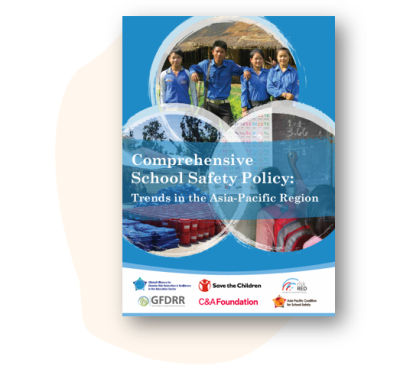
CSS Policy Survey 2017

CSS Policy Survey 2017
Summary
GADRRRES conducted the first Comprehensive School Safety Policy Survey in 2017 using an online survey tool and regional facilitators. Sixty-eight countries participated and half of these countries had their survey results validated by the relevant government authority.
The CSS Policy Survey allowed us to do three important things:
- Have a quick overview of the strengths and gaps in CSS policy
- Track progress over time
- Compare results across countries, esp. in a particular region

Findings of 2017 CSS policy survey
The 2017 survey found that:
- Most countries had policies to ensure safer school construction, but few countries were upgrading weak, existing schools
- About half the countries required schools to carry out emergency drills, but less than a quarter included disaster management in teacher training
- A quarter of the countries included climate change and disaster risk reduction in their national school curriculum, but only a few countries trained teachers to deliver this curriculum.
- The Latin America and Caribbean region led the way in policies aimed at ensuring safe school site selection, school construction monitoring, and mandating fire drills.
- The Asia Pacific region led the way in integrating risk reduction and resilience education into their national curriculum and raising public awareness
- African countries led the way in referencing disaster risk reduction or disaster response in their education sector policies
The following publications report this data:

67 countries participated in the 2017 CSS Policy Survey

The 2017 Comprehensive School Safety Policy Country Profiles are available in English, French, and Spanish.

